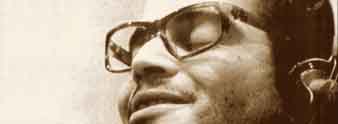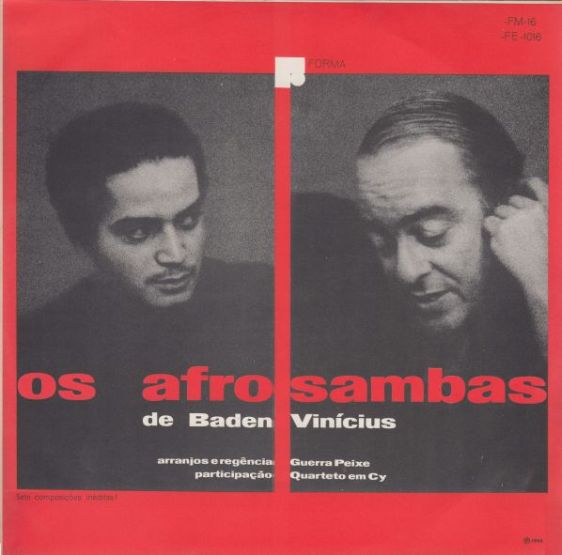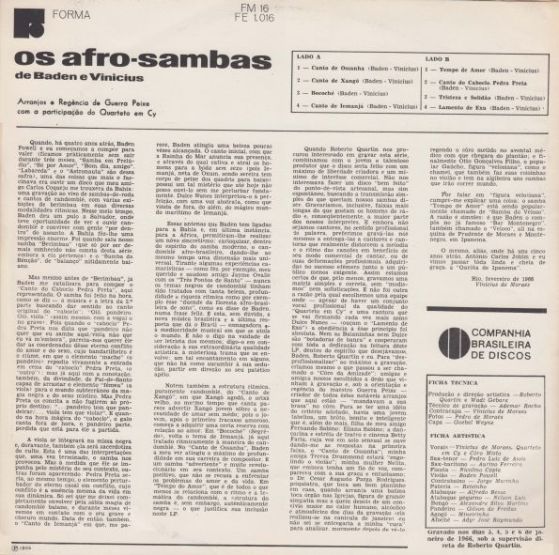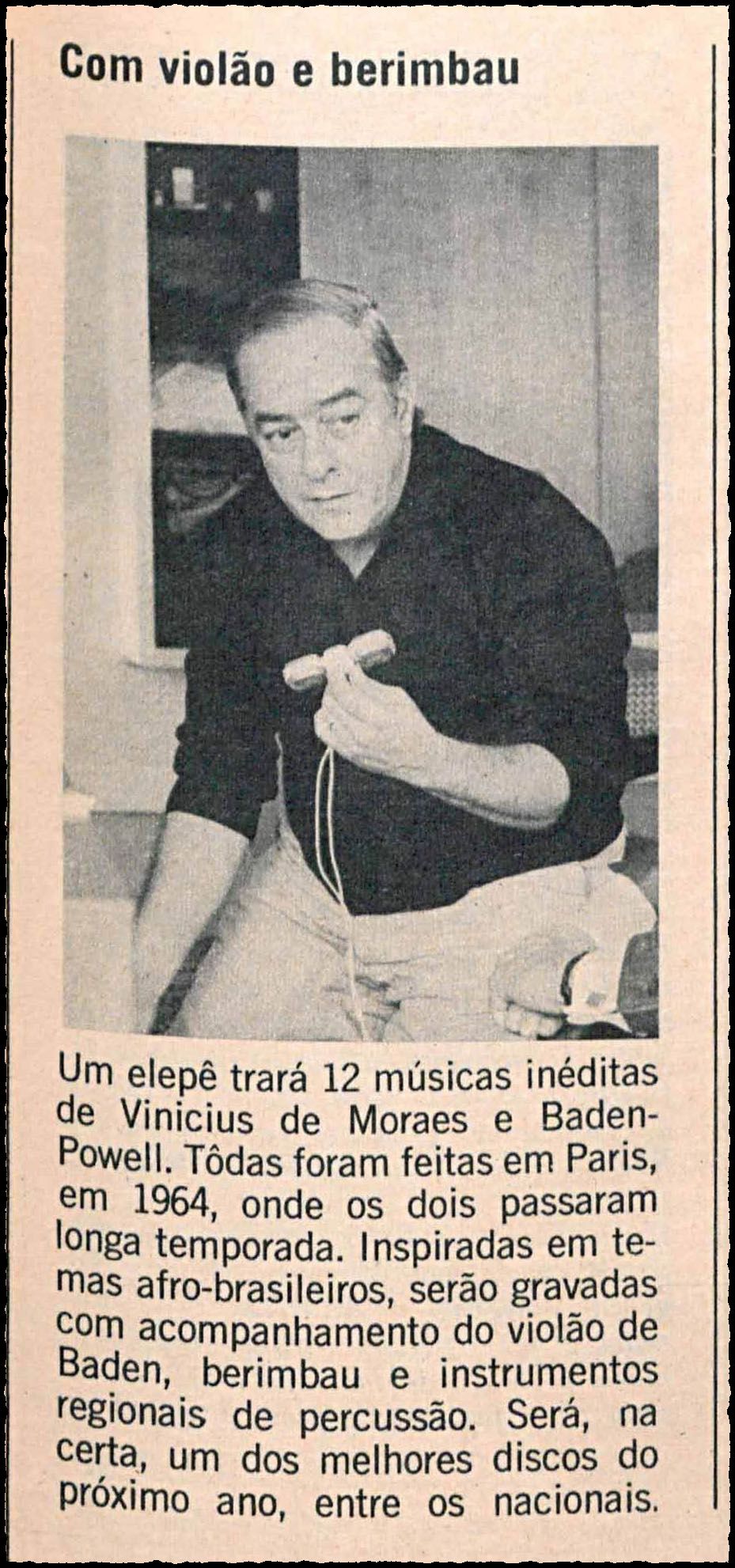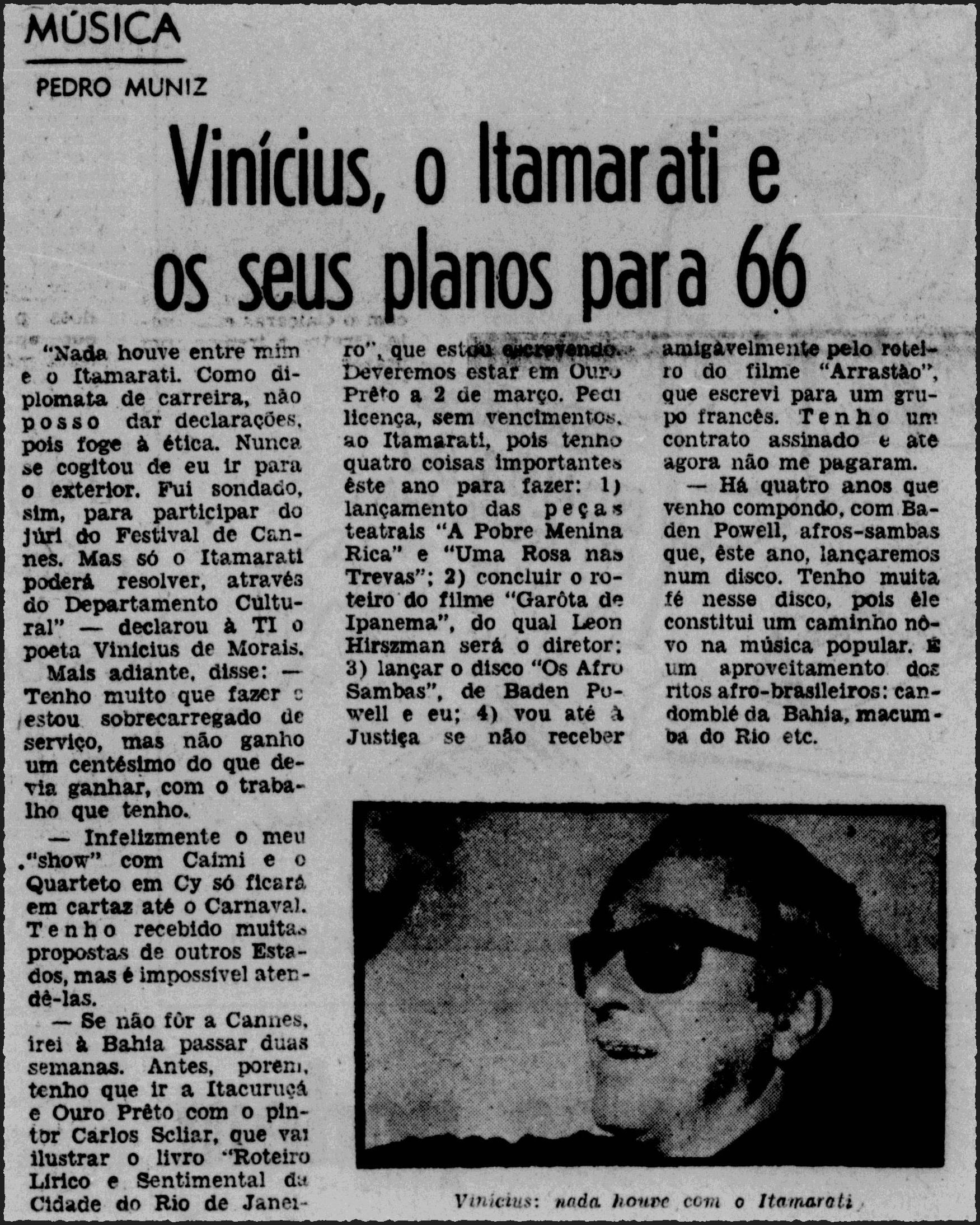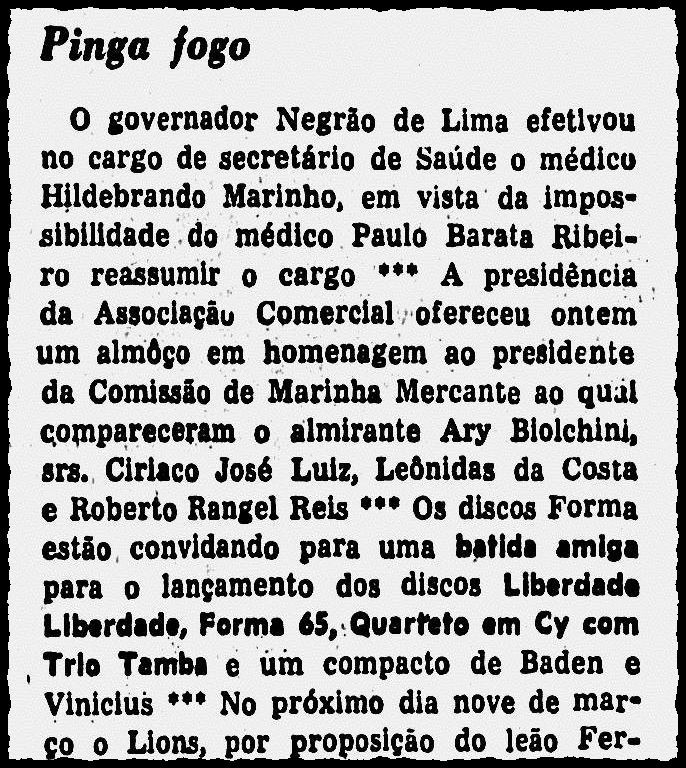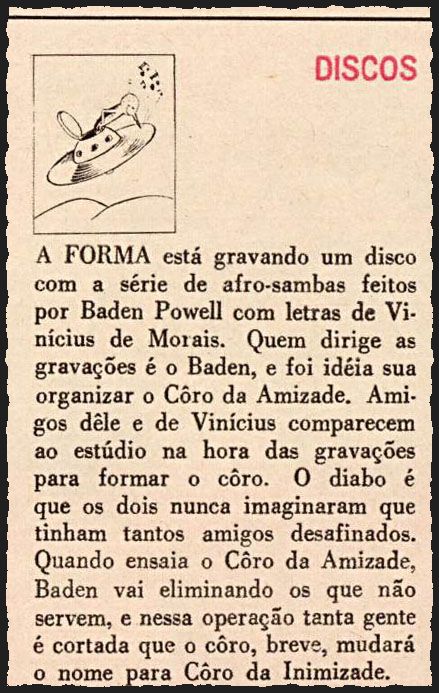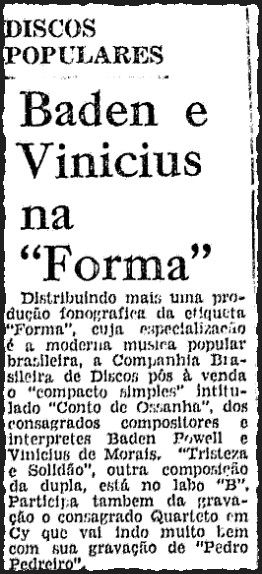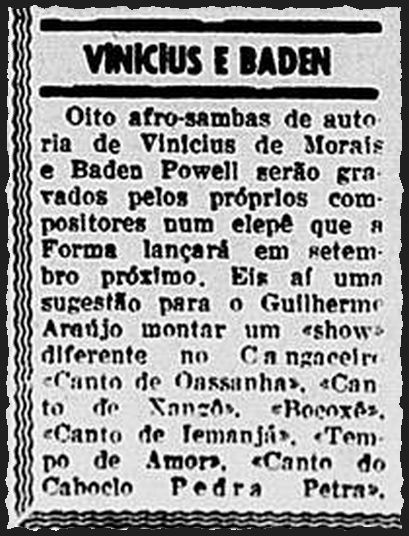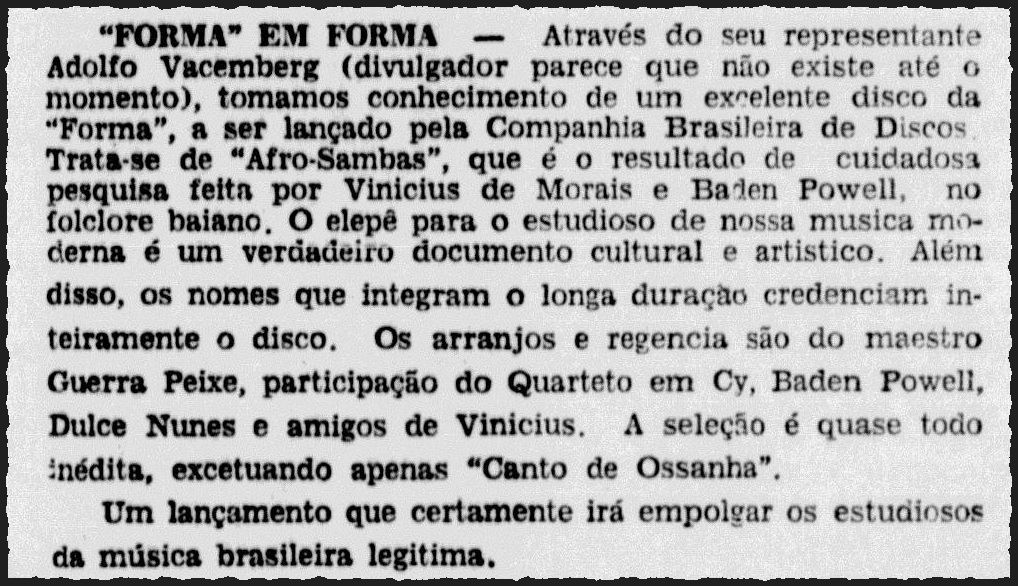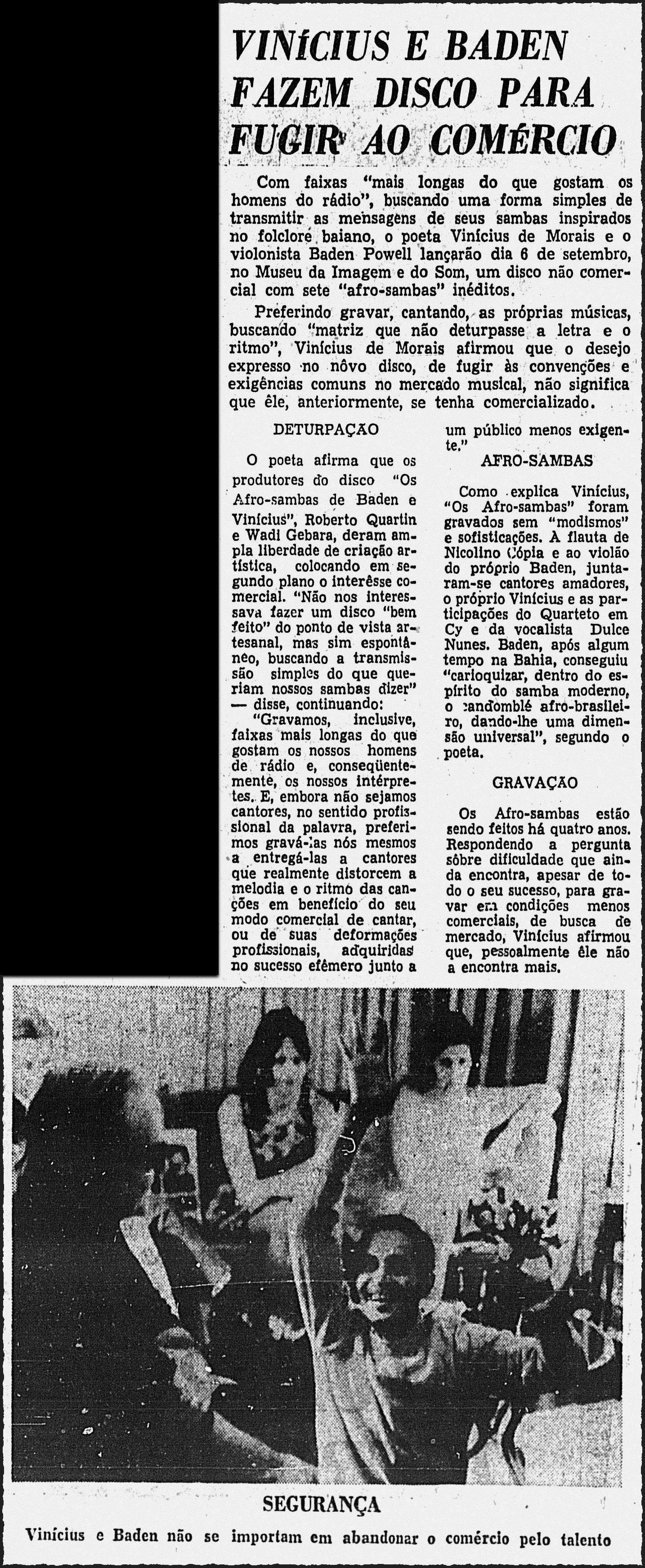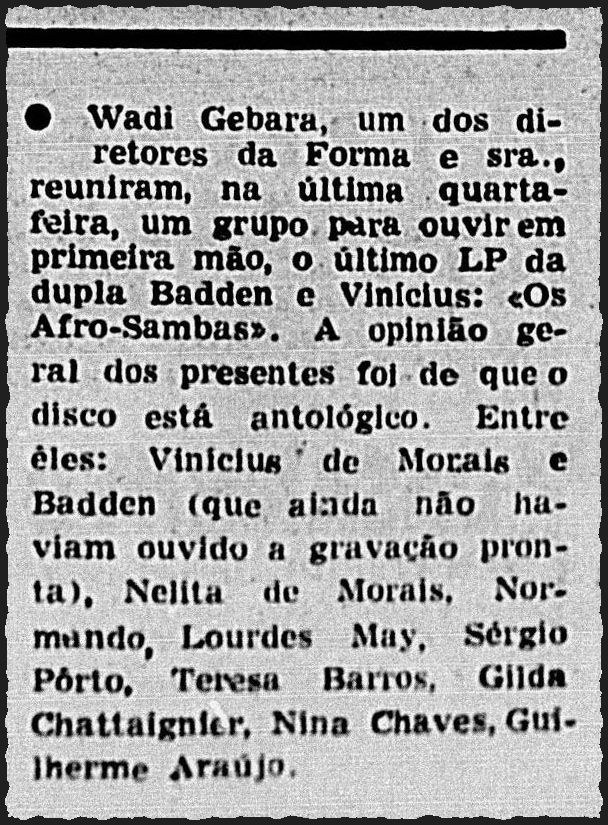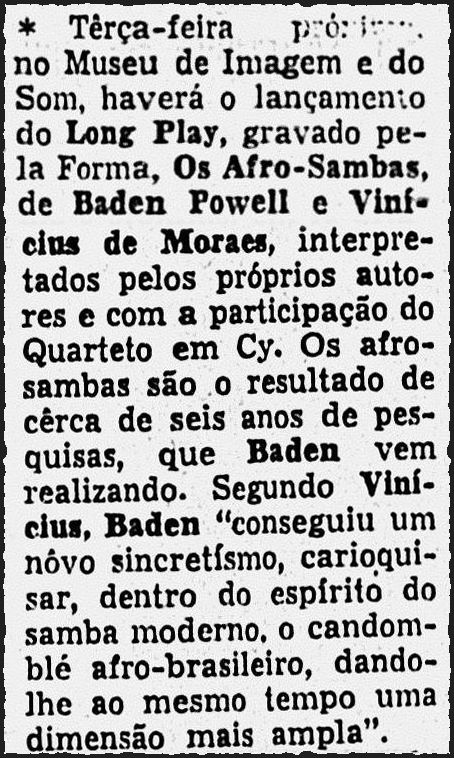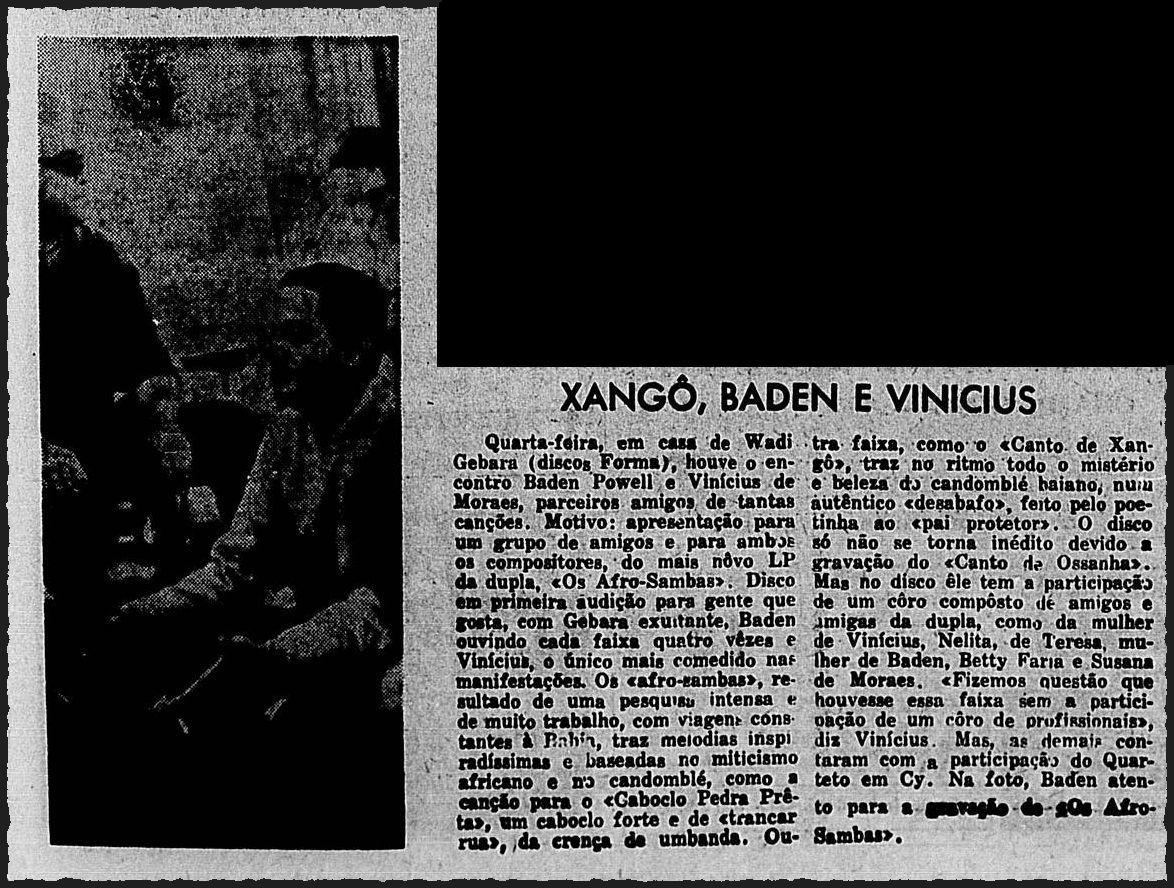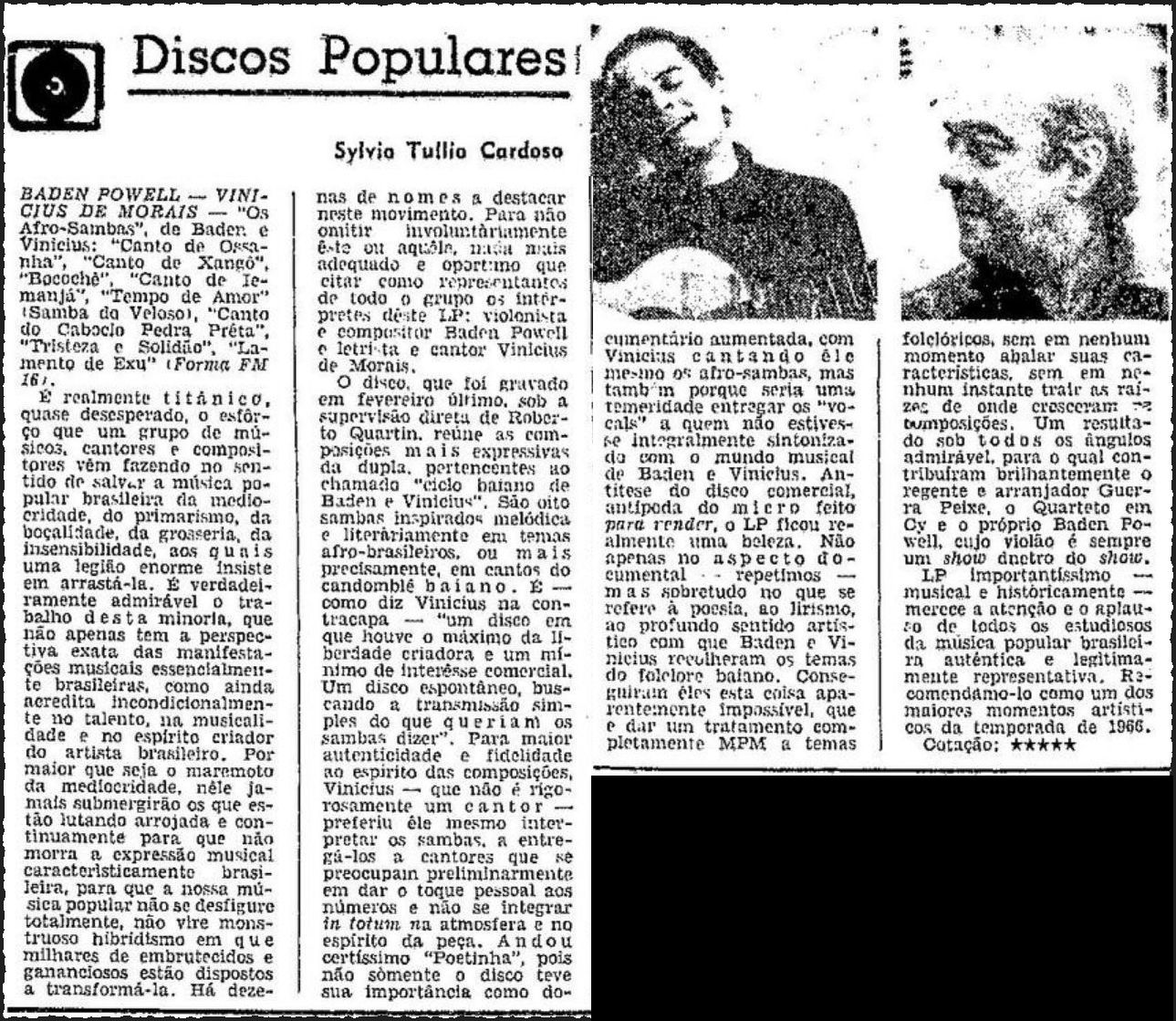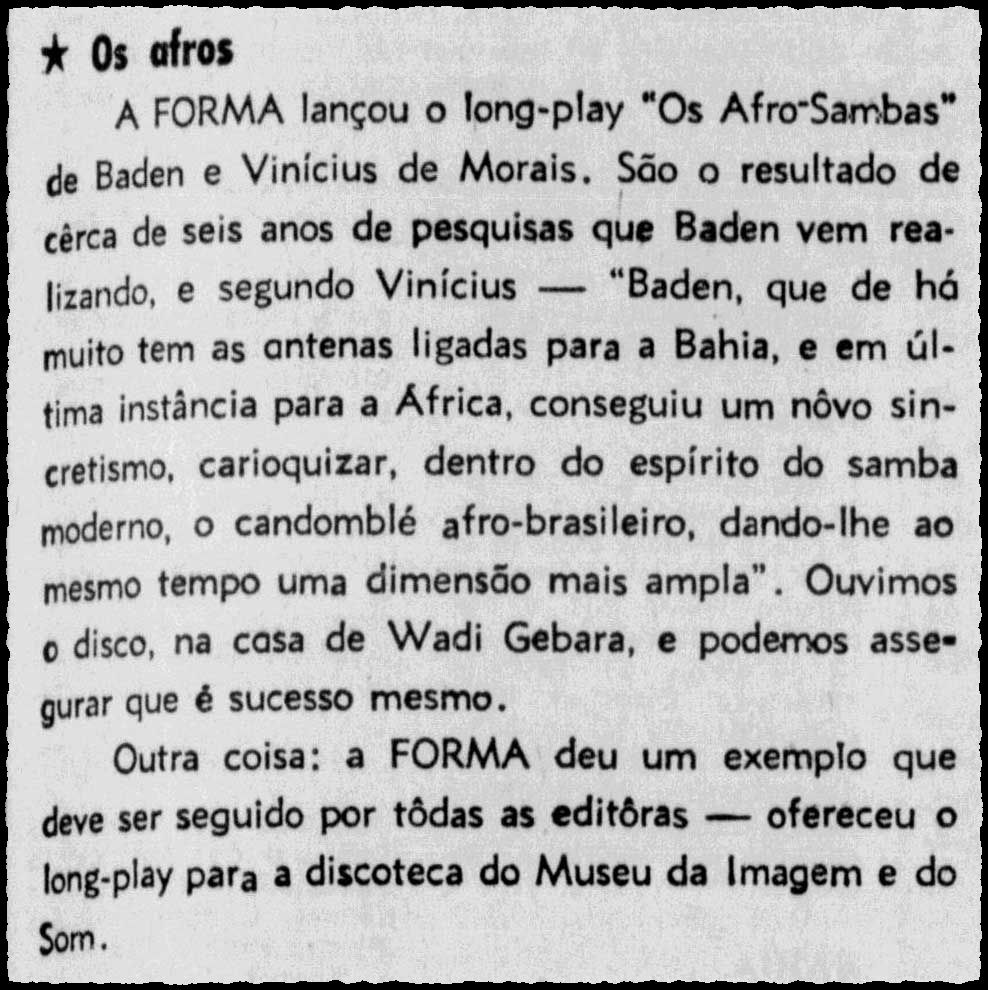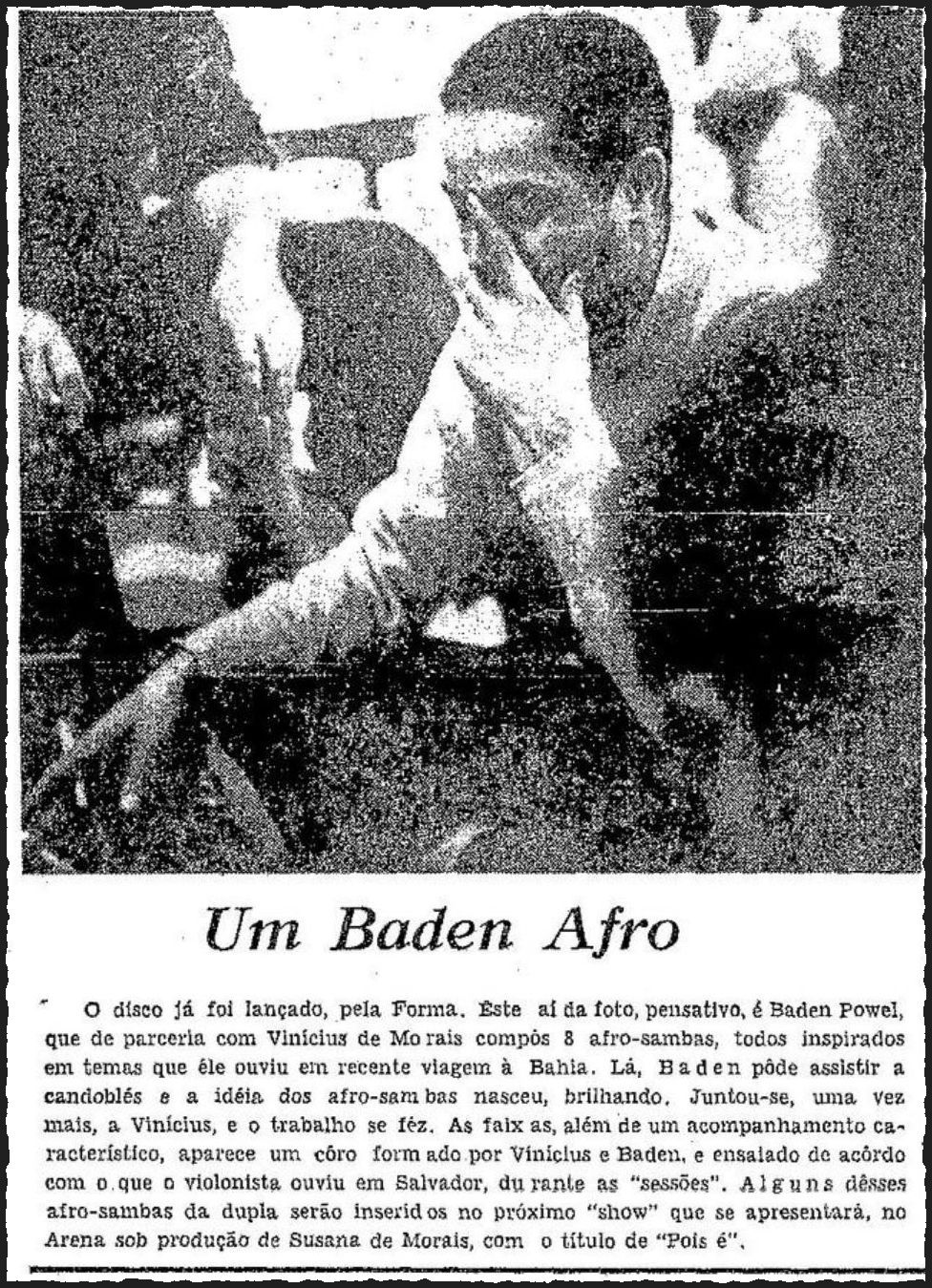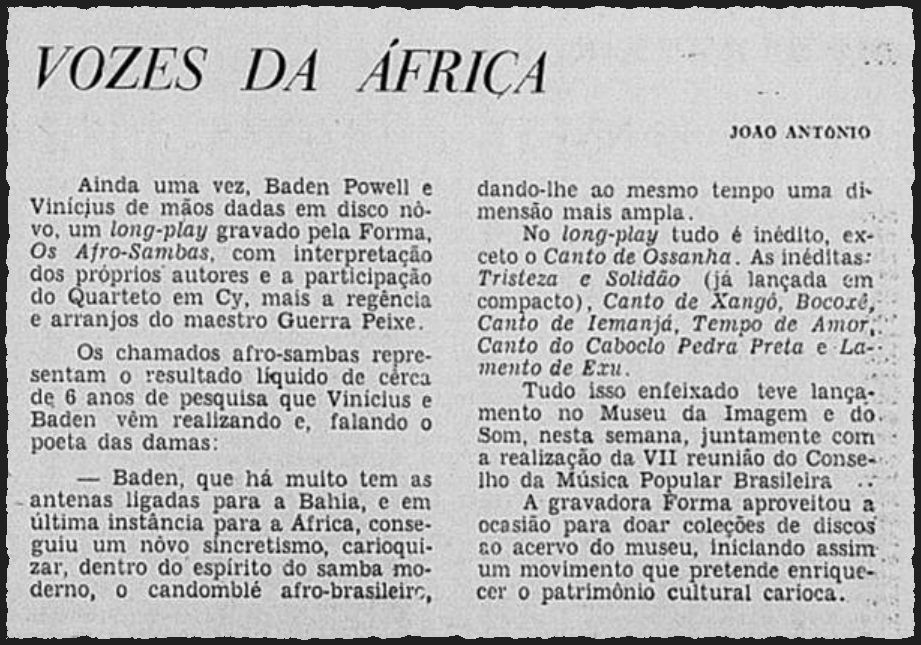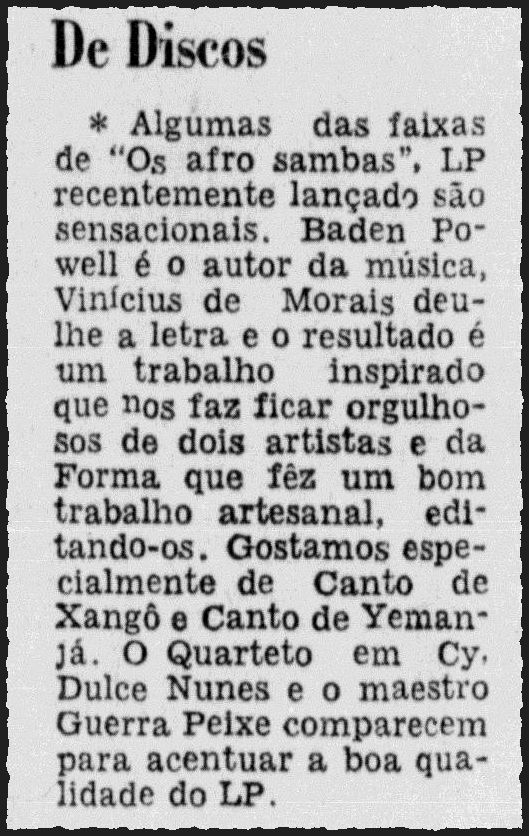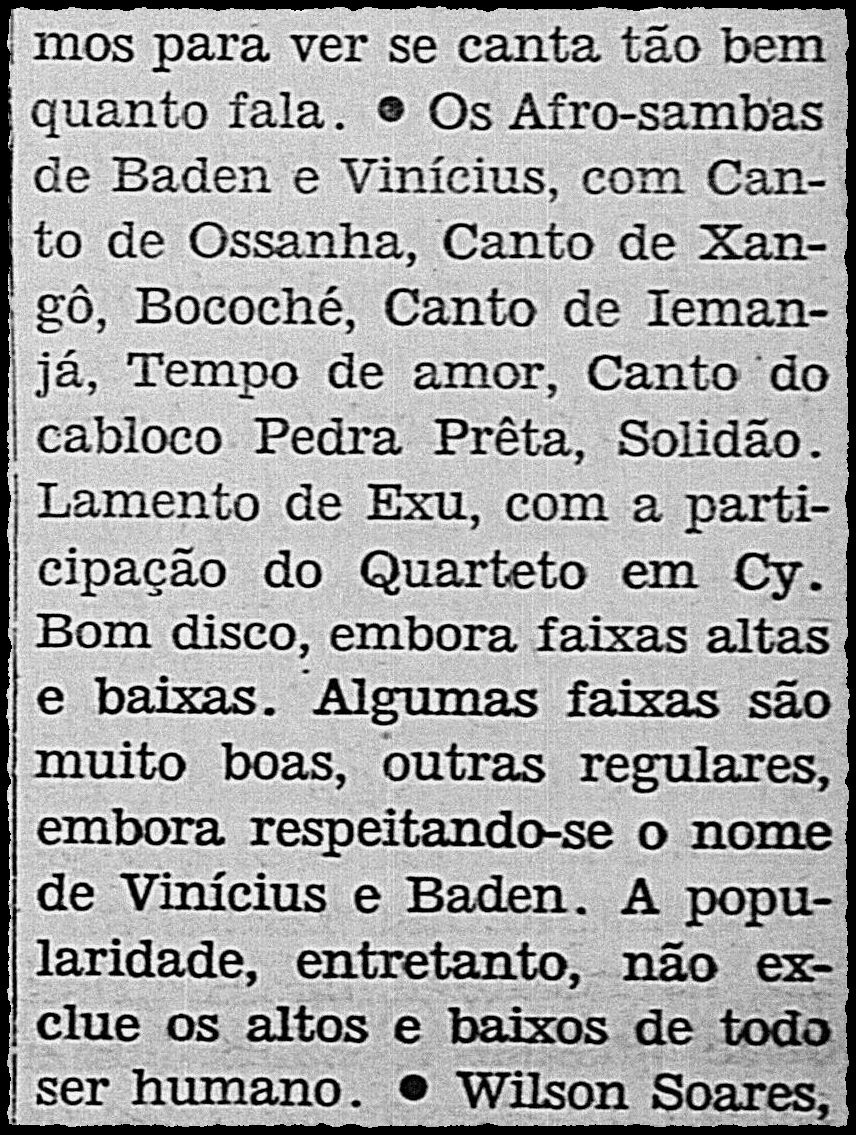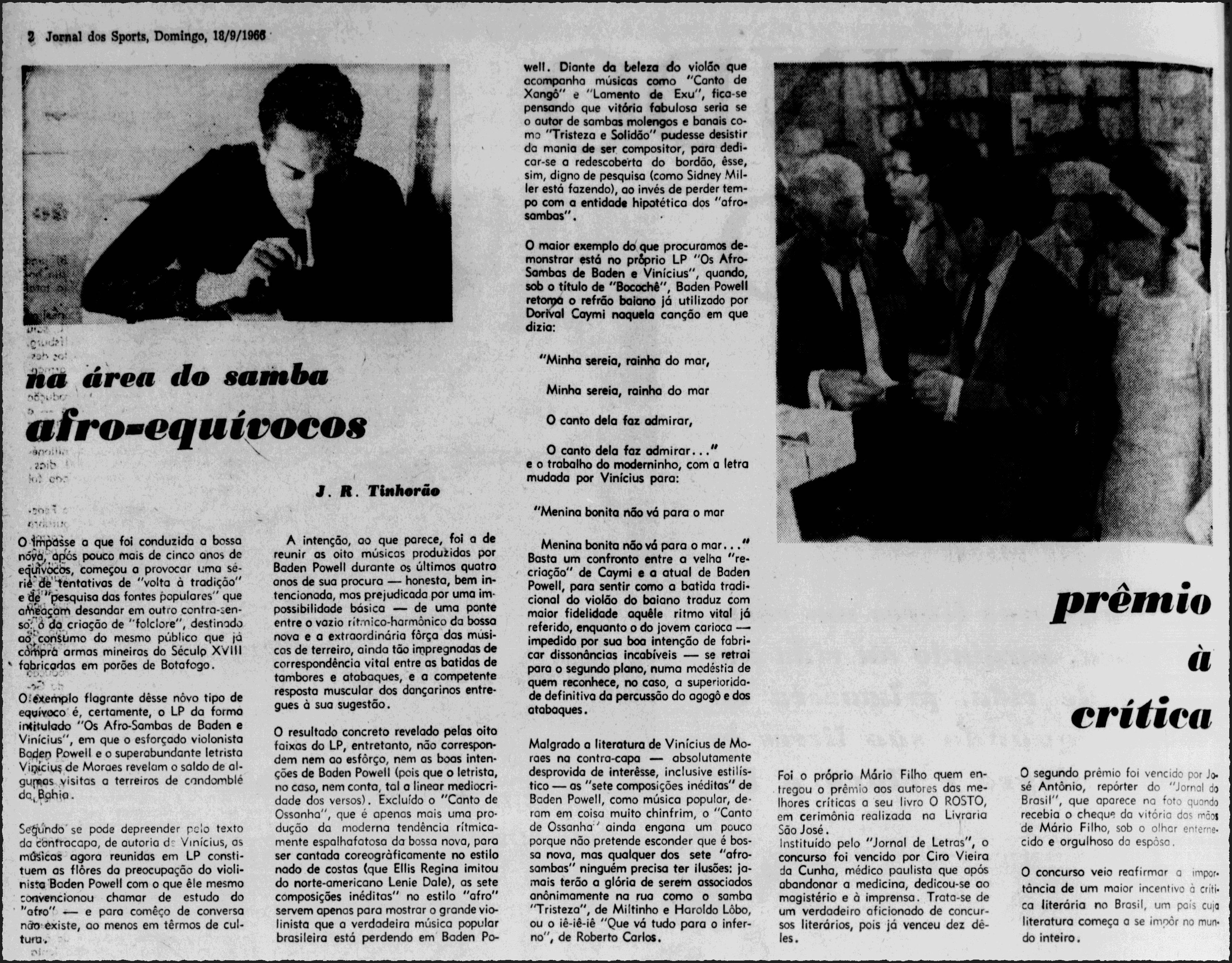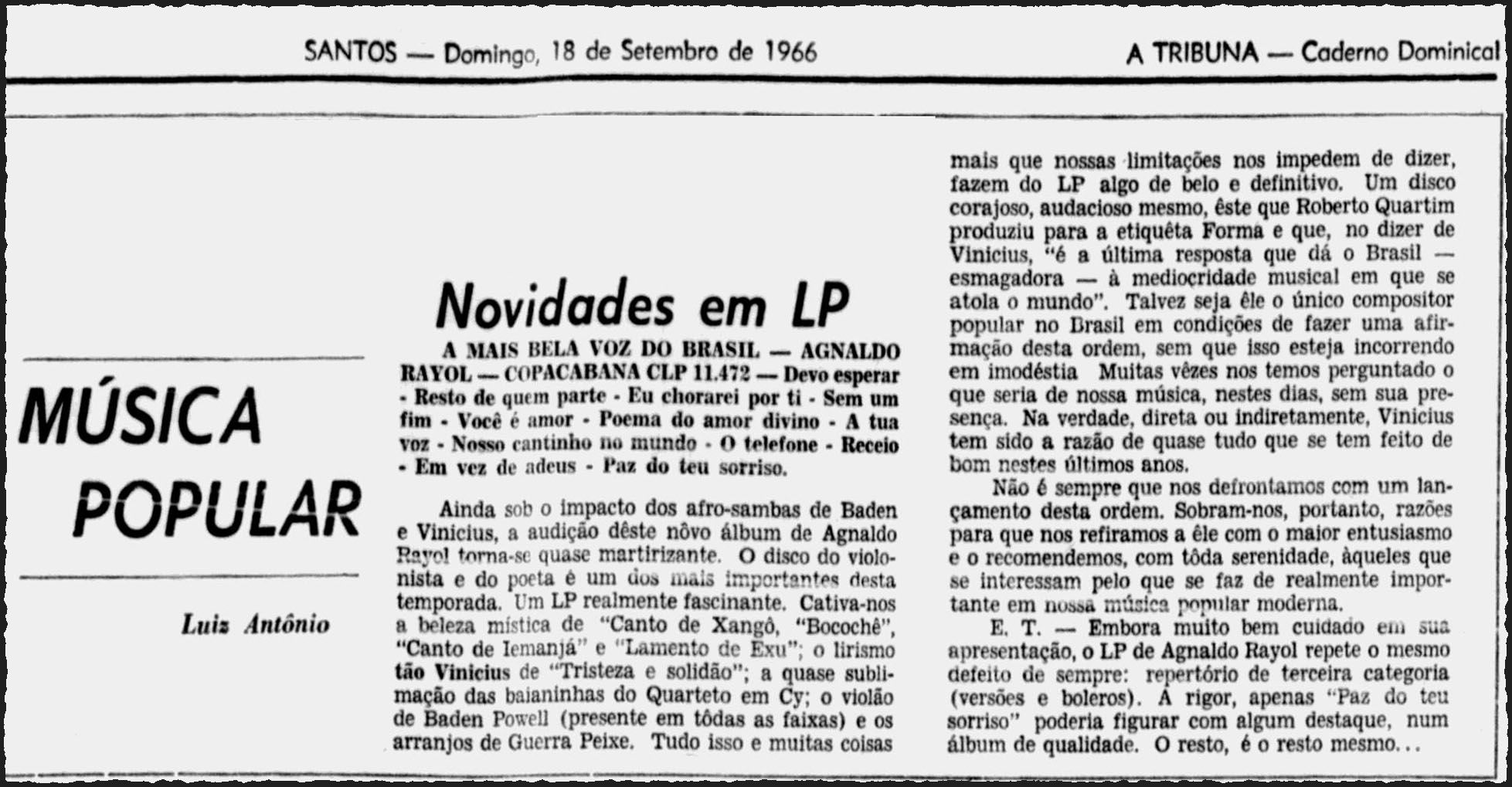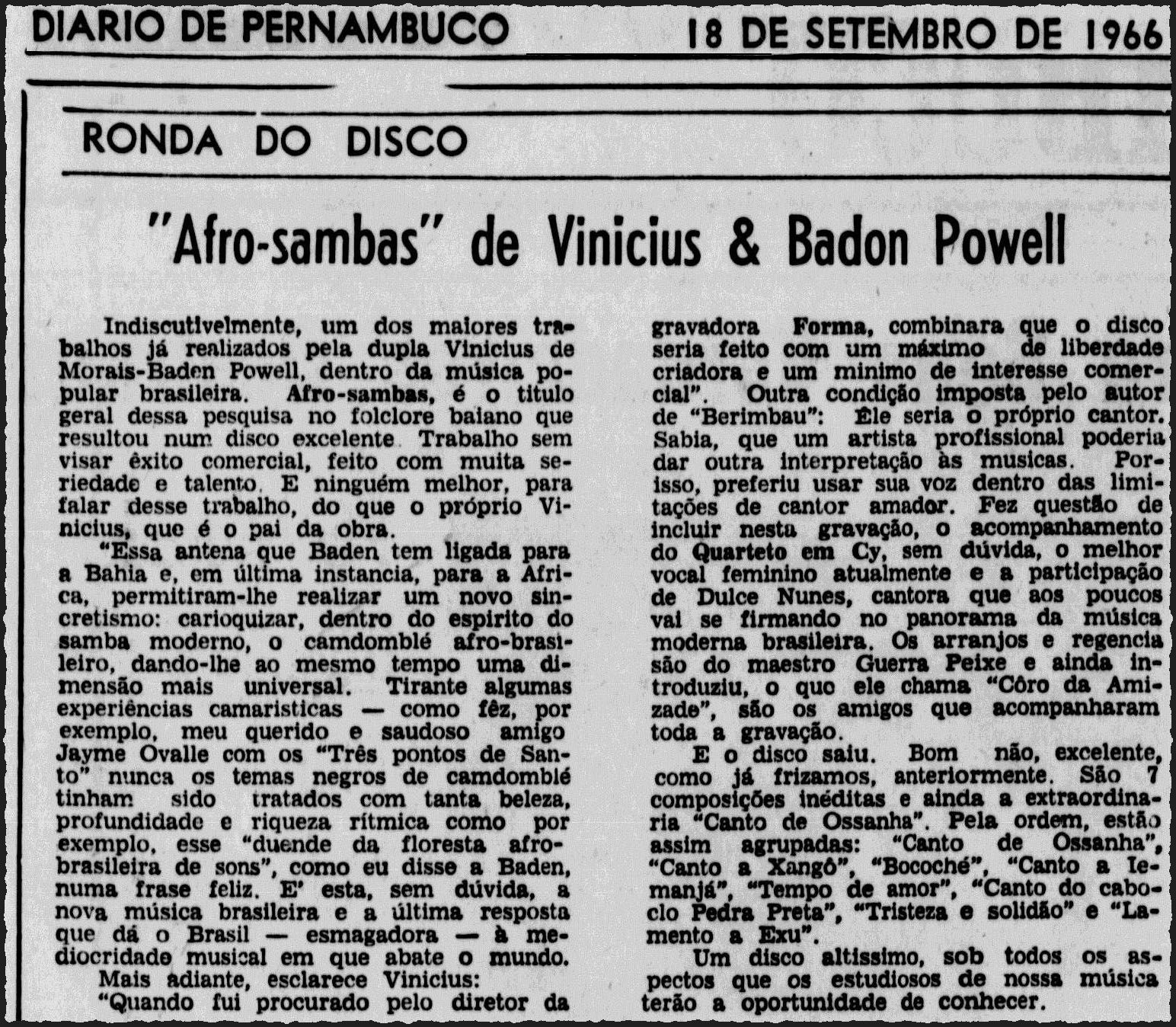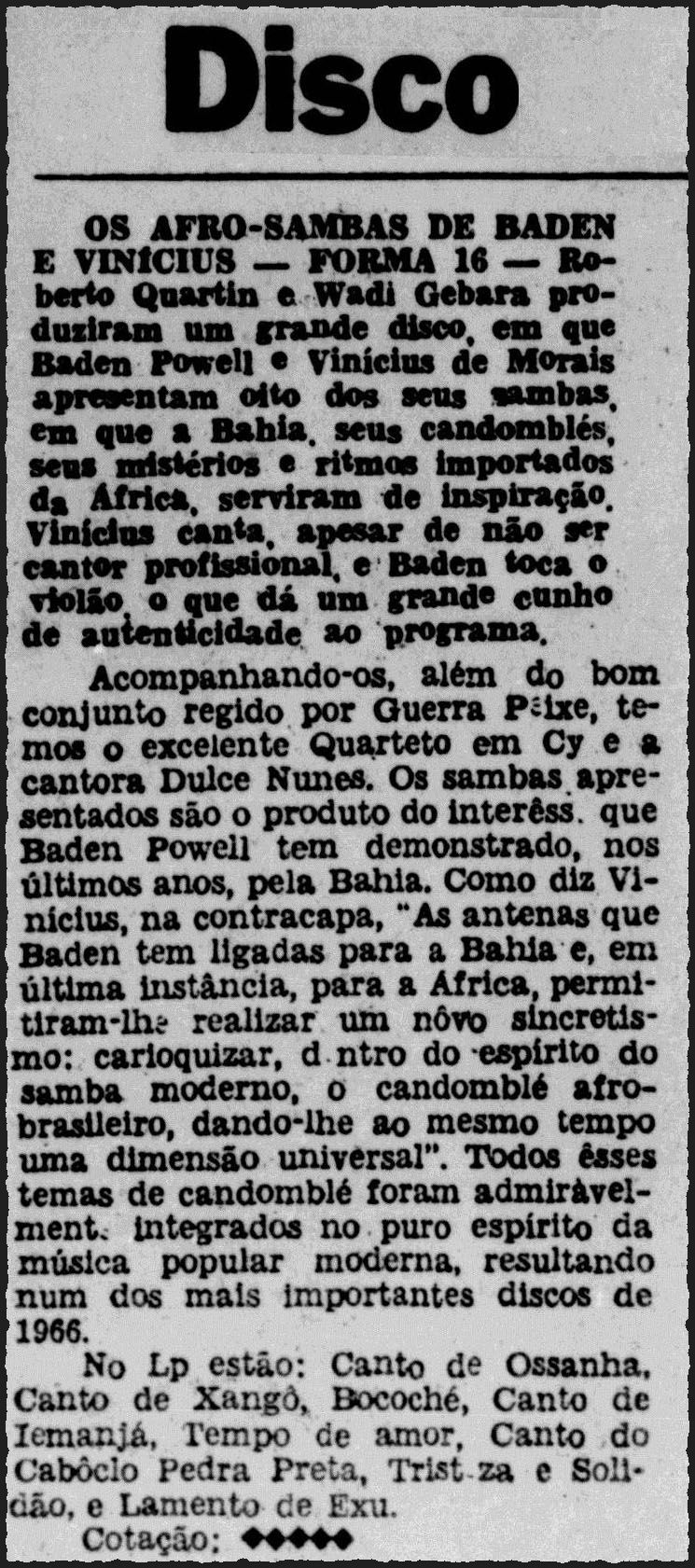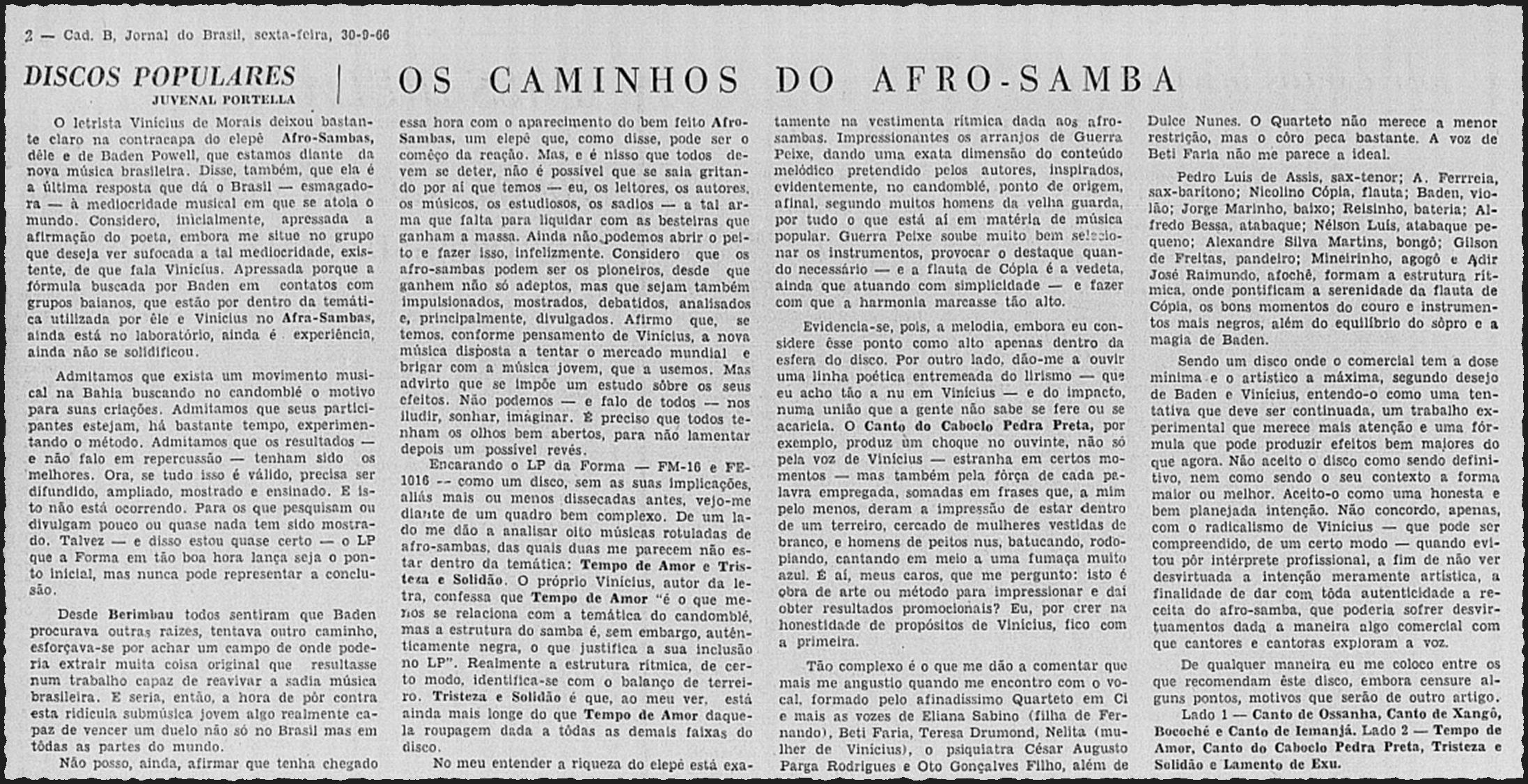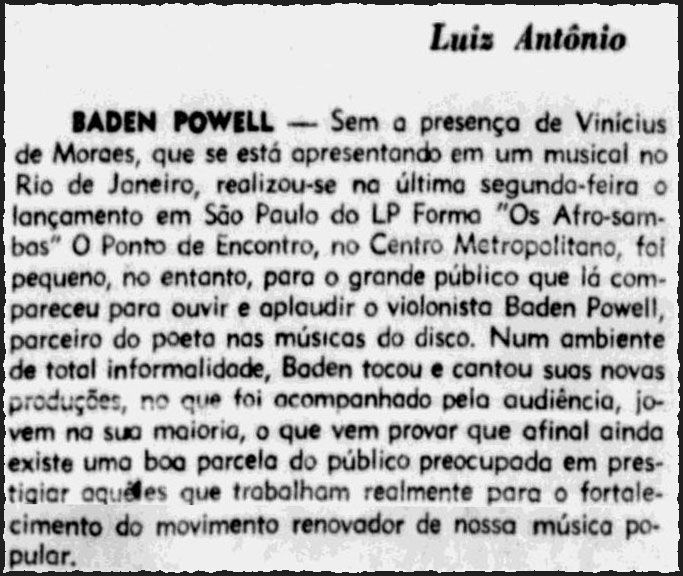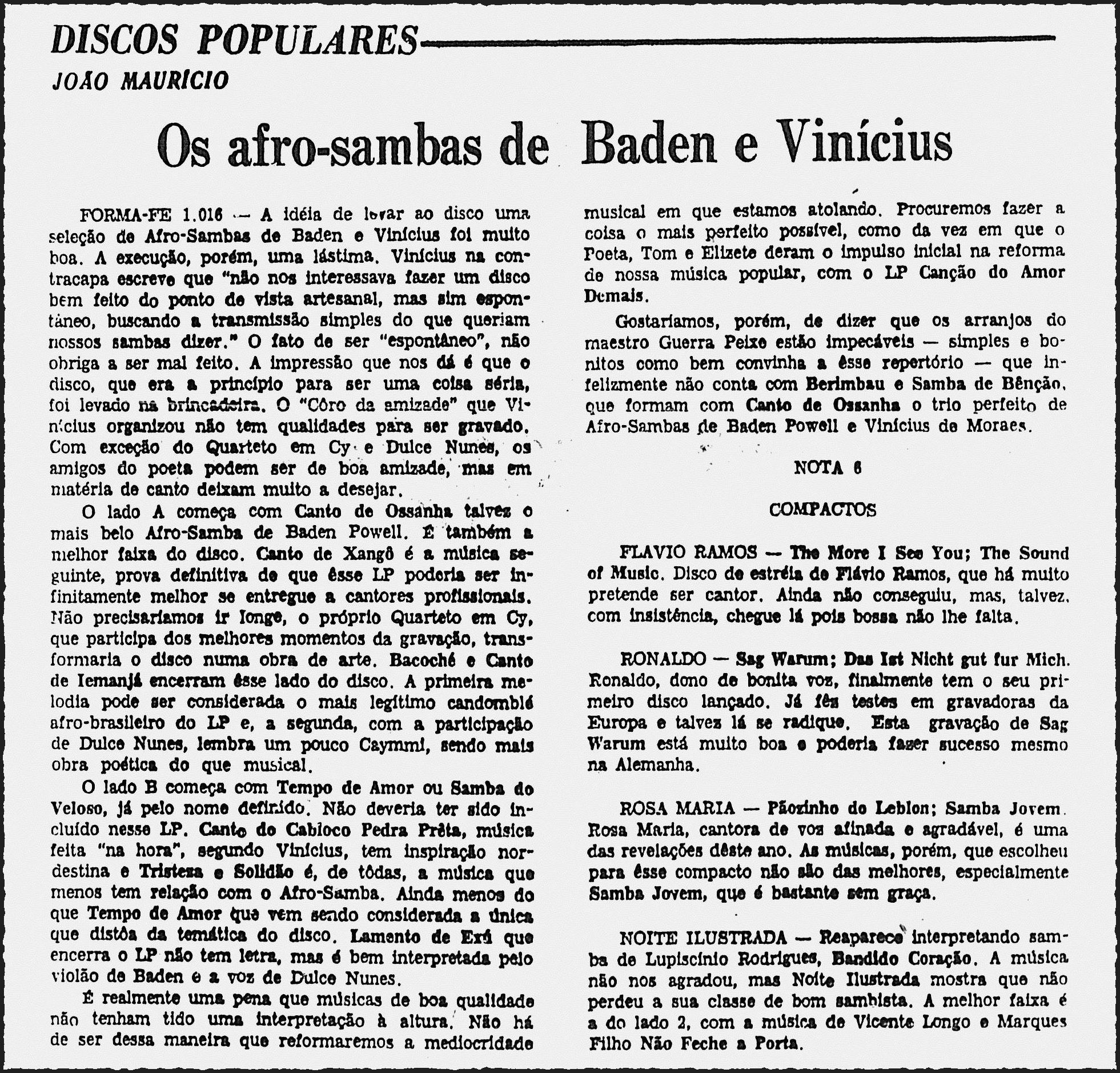|
BrazilOnGuitar says: The year 1966 would be very important for Baden's career.
Firstly, he would get to know the jazz expert Joachim-Ernst Behrend, who would produce
Tristeza On Guitar and invite him to Germany, where more important contacts for
his career would develop. Secondly, he recorded an album of songs, that were the result
of an intense work with Vinicius de Moraes: Os Afro-Sambas. These songs were his
biggest contribution to Brazilian music history and will always keep alive Baden Powell's
name and memory. Thanks to Robert G. for his translation, Joe Carter
for infos and Mark for his scans of the UK release.
Additional Info 2021: Review about the 1966 "Canto De Ossanha" single (FS 100.001). The single recording is different to the LP.
Fernando Krieger from discografiabrasileira.com.br wrote: "[...] Right at the beginning there is a significant change. Unlike what happens on the LP, where it is the sensual voice of Betty Faria who responds to Vinicius' singing,
in the compact the answer is given by Baden's own voice. The choir and musicians seem to be (and this may just be an impression) safer in performing the song.
It is possible (and here's an exercise in speculation) that this audio was made during the sound passage, without the natural nervousness that the recording "for real"
imposes, or as a take 2 of the song, with all more "loose" after the first shot. The most relaxed seems to be Vinicius himself, who from the beginning shows himself
a little "possessed", more confident, with his voice coming out stronger, especially in the "go, go" (especially in the latter, when his excitement is clear).[...] "
|
